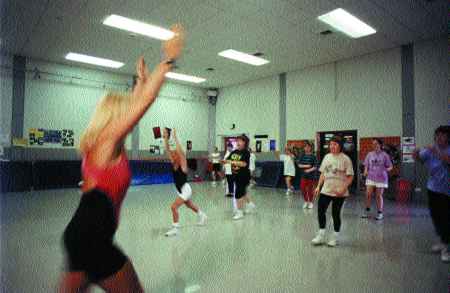|

Many schools already share their hall with the community. In the
future most schools are likely to open up the school for a large
part of the day, throughout the year.
For
instance underlying pupil
health and motivation problems can be more easily dealt with by
on-site medical, mental health, counseling and social services,
with minimal disruption to children's learning. Provision of childcare
and recreational facilities can ensure children have safe and stimulating
opportunities to play and learn, and can relieve pressure on families.
|
Where
schools have started to develop these wider services, parents tend
to become more involved in the school and therefore more supportive
of their children's learning. Research has shown that parental involvement
is one of the key factors in a pupil's performance (Dyson and Robson,
1999). Adult and family learning in particular can help raise adults'
expectations of their children, while they themselves may be encouraged
to continue their own education at a higher level.
Schools developing in this way can help to bring together different
community groups, and in deprived communities can make a key contribution
to neighbourhood renewal. Training and ICT facilities provided by
the school can help meet local employment needs and enable people
to keep pace with changing technology. Co-location of services can
be particularly valuable
in rural areas, where services are currently often spread out over
a wide area, making them difficult to access. |
|
